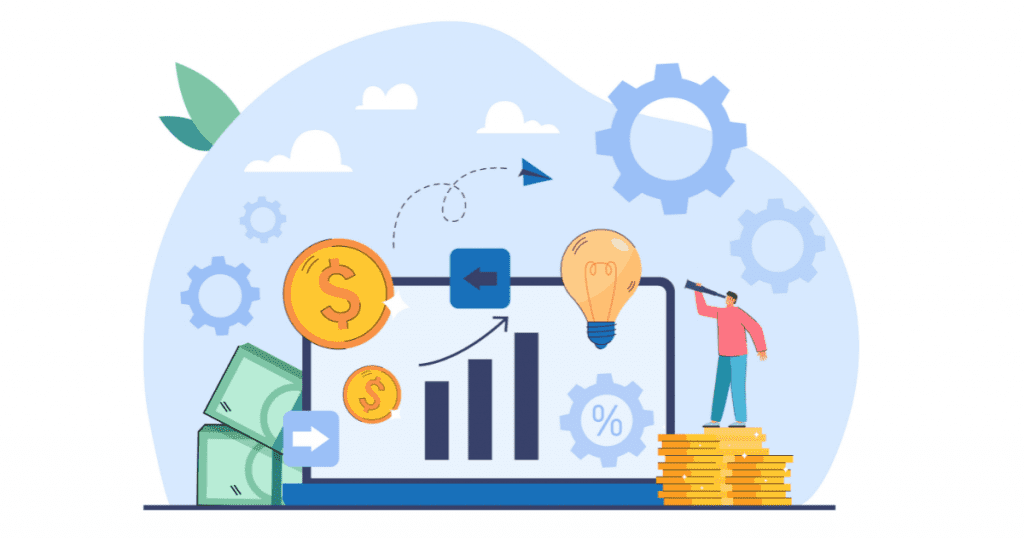How AI Can Transform the Future of the Loan Distribution Space

Artificial intelligence (AI) has the potential to completely change how loans are distributed. With several different advantages for both, lenders as well as borrowers. Financial institutions and organizations can surely improve risk assessment, expedite operations, and provide individualized loan recommendations by the adequate use of artificial intelligence.
To ensure just and responsible artificial intelligence implementation, careful examination of ethical concerns is essential.
Having said this, there is no doubt about it that artificial intelligence is surely the future of the loan distribution space. Artificial intelligence can bring numerous benefits to the financial sector in several different ways. Artificial Intelligence can enhance operational efficiency significantly. It has been witnessed over the course of time how use of latest technology has changed the world and has also made lives much more easier than it used to be. Artificial intelligence will most certainly change the future for the better. There are endless benefits of artificial Intelligence.
Here are some of the reasons how Artificial Intelligence can transform the future of the loan distribution space:
Simplifying Loan Procedures.
The loan distribution process can be automated and streamlined with the help of AI technology, which boosts productivity and lowers expenses. Chatbots and virtual assistants powered by Artificial Intelligence can help borrowers with the application process, give prompt answers to questions, and help with document gathering and verification. This automation enables quicker loan approvals and disbursements by saving time and effort for both borrowers and lenders.
Enhanced Risk Assessment.
The ability artificial intelligence to analyse massive volumes of information for risk assessment is one of the technology’s most important benefits in loan distribution. AI algorithms can review a borrower’s credit history, work history, financial records, and even supplemental data sources like social media profiles and internet activity. AI can produce risk profiles that are more accurate by taking into account a variety of factors and patterns, allowing lenders to make well-informed judgments and reduce potential defaults. This sophisticated risk analysis may result in more equitable loan pricing, greater credit availability for qualified applicants, and lower overall risk for lenders.
Personalized Recommendations for Loans.
To make personalized loan recommendations, Artificial Intelligence algorithms may examine the financial objectives and borrower profiles of each individual. AI can match consumers with the most appropriate loan products by taking into account variables like income, expenses, credit history, and loan purpose. This individualized strategy lowers the risk of default while increasing the likelihood that loans will be approved and client satisfaction met. Additionally, AI may continuously improve its recommendations based on input from borrowers and loan performances better meeting their changing demands.
Detecting and Preventing Fraud.
Artificial Intelligence is essential for preventing and detecting fraud when it comes to loan distribution. Unlike conventional methods, machine learning algorithms can quickly and accurately identify suspected fraudulent activities by spotting patterns and anomalies in financial transactions. AI can adapt to new fraud strategies by examining historical data and continuously learning, giving lenders and borrowers both increased security and protection. Fraud detection not only protects the financial interests of lenders but also helps in maintaining the reputation of the loan distribution company.
Also Read – Future Of Artificial Intelligence In the Finance Field
Efficient Loan Servicing.
Making automated loan servicing processes like payment processing, document management and customer support easier by the help of artificial intelligence, this will most definitely be one of the greatest boons that artificial intelligence could bring to the loan distribution sector. Routine tasks can be handled easily by intelligent systems, freeing up human resources for more complicated problems. Automated payment processing makes sure that collections are made on time and accurately, lowering administrative errors and enhancing overall customer satisfaction. Additionally, artificial intelligence enabled customer support systems may respond to inquiries right away and help with refinancing or loan adjustments, increasing borrower satisfaction throughout the whole loan lifecycle.
Technologies for the Future:
Artificial intelligence offers various different technologies to transform the loan distribution space.
AI offers technologies like big data and machine learning, natural language processing (NPL), robotic process automation (RPA), blockchain technology, predictive analytics, biometric authentication, mobile and cloud computing, etc. These technologies when combined with AI can automate processes, improve decision making, enhance security, and provide a more seamless and efficient loan distribution experience for both, lenders and borrowers alike.
By providing faster procedures, individualized loan recommendations, improved risk assessment, fraud detection, and effective loan servicing, artificial intelligence also has the potential to completely transform the loan distribution industry. To ensure fairness, transparency, and accountability in lending choices and to encourage the appropriate use of artificial intelligence, it is essential to give ethical considerations, the top most priority. Artificial intelligence has the potential to transform how loans are distributed. In the future, helping lenders, borrowers and the entire financial ecosystem would get easier than ever before due to the use of artificial intelligence. Therefore artificial intelligence can be highly beneficial for the financial sector in the coming years. In this way, we understand that the use of artificial intelligence can prove to be extremely critical for the future of the financial sector.








